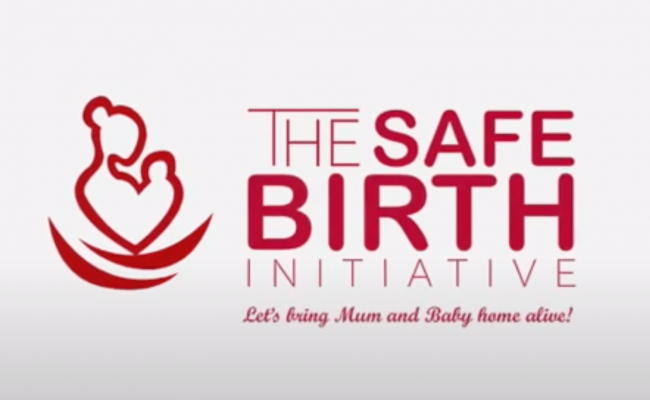When Amarachi conceived her baby girl, the chances of losing her baby during childbirth appeared slim as she was very intentional about taking care of her health and attending the required antenatal sessions. It was therefore saddening to her friends and family when all her efforts proved unsuccessful.
On Friday, 29th September 2021, Amarachi went into labour. Unfortunately, complications arose which proved beyond her local primary healthcare centre that she needed a referral centre with lifesaving medical equipment to keep her and the baby alive.
A few hours later, she and her baby were confirmed dead by the attending doctor as basic lifesaving equipment were either non-functional or unavailable. The Nigerian landscape is rife with heartbreaking cases such as Amarachi’s.
Conception and childbirth are celebratory events believed to form parts of the numerous joys of womanhood, and it is expected that memories of childbirth are treasured as positive experiences. However, the current analysis of neonatal and maternal mortality index in Nigeria tends to counter this with the country’s high mortality rate notably traceable to its poor health care systems.
The United Nations Children’s Fund (UNICEF) places the neonatal mortality rate in Nigeria as at 2022 at 56.220 deaths per 1000 live births, which is a 2.57 percent decline from 2021. UNICEF raises that the maternal mortality rate in Nigeria currently contributes to 10 percent of the global death rate as it stands today at 576 per 100,000 live births.
This means that each year, over 262,000 babies die due to issues such as diarrhea, infection, premature birth, asphyxia, or congenital anomalies. Despite this deficit, the Nigerian health care system has continued to suffer due to inadequate funding, poor health care infrastructures among many variables.
It is often said that infant mortality rates are used as indicators of the health and well-being of a nation. Where does this rank Nigeria in comparison to countries such as Slovenia, South Korea, Germany, Japan and Iceland, whose infant mortality rates are between 1 – 4 deaths per 1000 births?
The difference is that developed countries provide access to health care facilities, equipped with functional machines and skilled human resources which combine to prevent avoidable deaths of both mother and child.
Two key questions arise: ‘How do we solve this dire situation in our country?’ and ‘How do we mitigate the risks associated with childbirth and push for a turnaround in our country’s mortality rate?’
Healthcare interventions like the Safe Birth Initiative, is a crucial example of how socially responsible companies like Coca-Cola Nigeria is helping to solve the health care situation in the country.
The total beverage company has shown leadership in promoting sustainable development in the country by ensuring continuous investments in the wellbeing of its host communities through diverse sustainability initiatives under its new sustainability platform, JAMII, which focuses on Water, Waste, Wealth and Wellbeing.
Just like its flagship women empowerment initiative, 5by20, that delivered on its objectives through the economic empowerment of over 6 million women at the end of 2020, Coca-Cola Nigeria has continued to support women by addressing the critical issue of neonatal and maternal mortality rate in Nigeria through its Safe Birth Initiative (SBI).
The Safe Birth Initiative was launched in partnership with the Office of the Senior Special Assistant to the President on SDGS, Federal Ministry of Health, and US-based International NGO, Medshare International, to support and strengthen the country’s healthcare capacity in achieving the SDG goals in relation to maternal and new-born mortalities.
With the launch of SBI in 2018, mother and infant death is being addressed through equipping neonatal units in over 10 teaching hospitals and federal medical centres in Nigeria, with the essential infrastructures to aid safe deliveries and post-delivery care for babies and mothers, including intensive care provisions due to delivery complications.
SBI have so far reached over 56,000 families with over 3,000 mothers & babies impacted and a total of 150 Biomedical Technicians/Engineers reached through its social investment program. In addition, Coca-Cola Nigeria has successfully upskilled over 150 biomedical engineers and 400 end-users with requisite knowledge and skills to ensure optimal utilisation of the medical equipment, and their effective maintenance. This intervention is aimed at promoting a maintenance culture and rehabilitation of abandoned medical equipment reducing downtime across these hospitals.
Some of the hospitals which have benefited from Coca-Cola’s Safe-Birth Initiative include Federal Medical Center, Ebute-Metta, University of Port-Harcourt Teaching Hospital, Aminu Kano Teaching Hospital, University of Ilorin Teaching Hospital, Federal Medical Centre, Owerri, Wesley Guild Hospital Ilesha, Abuja National Hospital, and Alimosho General Hospital, with more hospitals in progress.
Thus far, Coca-Cola Nigeria has donated Eighteen 40-feet containers of medical equipment and medical supplies, with the intention to donate more equipment and supplies to other public health institutions in 2022 and beyond, all to sustain the fight against mother and infant deaths. The donated medical equipment and supplies are valued at $10.8 million.
Speaking on the initiative, Director of Public Affairs, Communications and Sustainability, Nwamaka Onyemelukwe, reiterated the company’s resolve in promoting sustainable communities. She described motherhood as a vital aspect of life and noted that the difficulty encountered by underserved pregnant women in Nigeria was alarming.
In her words, “no family should ever experience the loss of a mother or a newborn child due to unavailability of equipment at a critical stage in delivery or even as a result of lack of functional lifesaving medical equipment in a healthcare institution”.
She further stated that in providing modern equipment under the initiative, it is ensured that each equipment donated to any medical institution conforms to the country specifications and standards set by the World Health Organization.






Comment
No comments found.